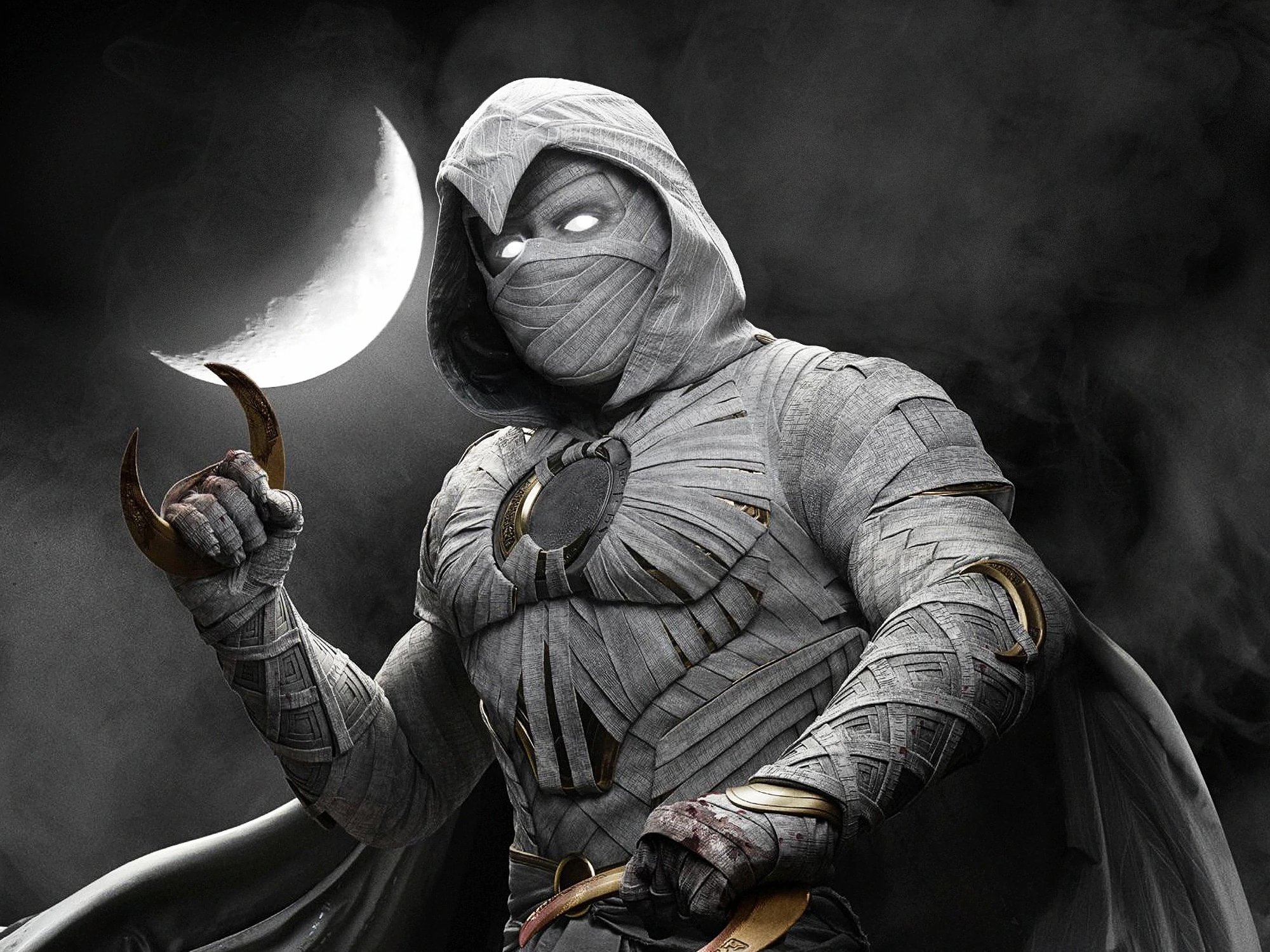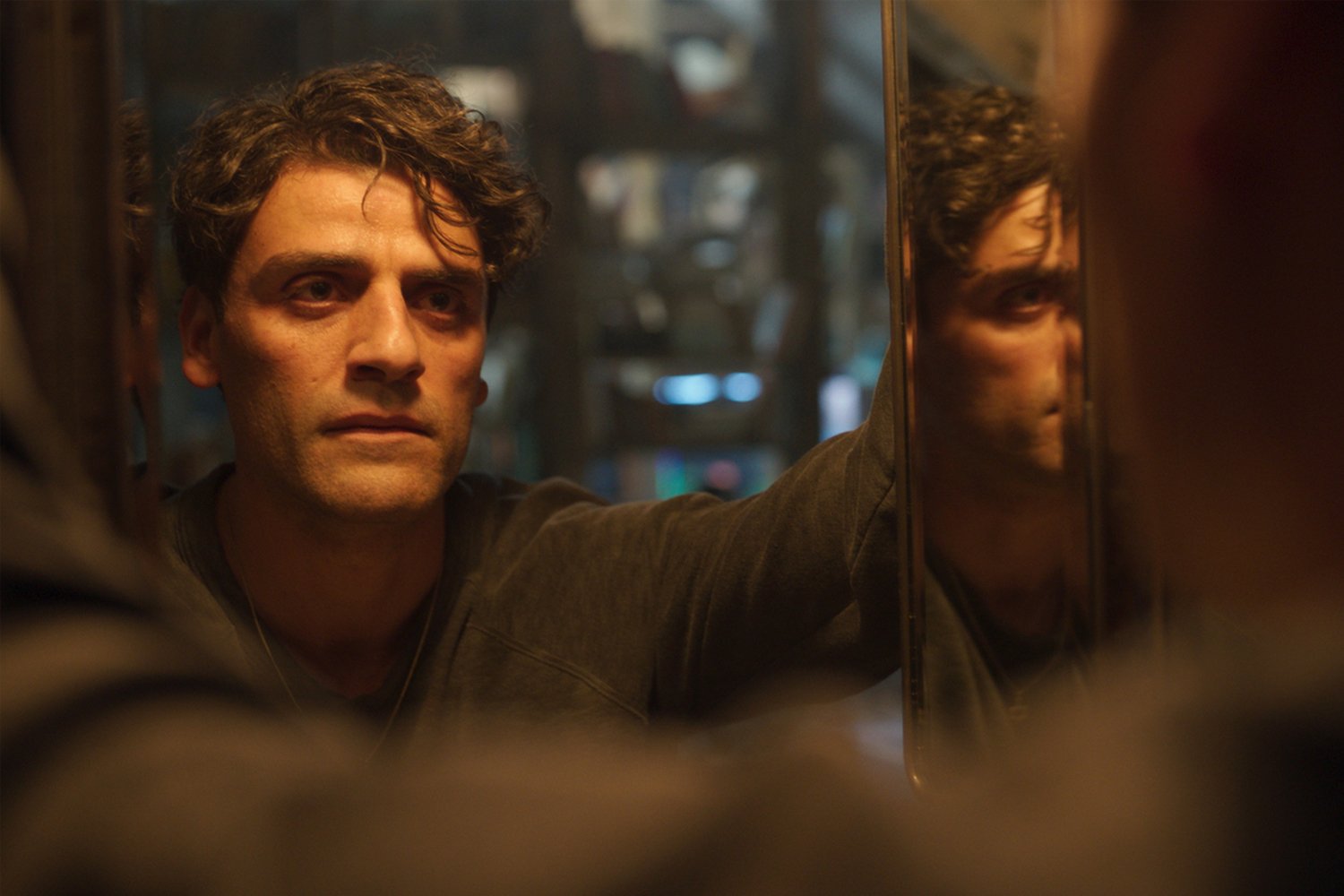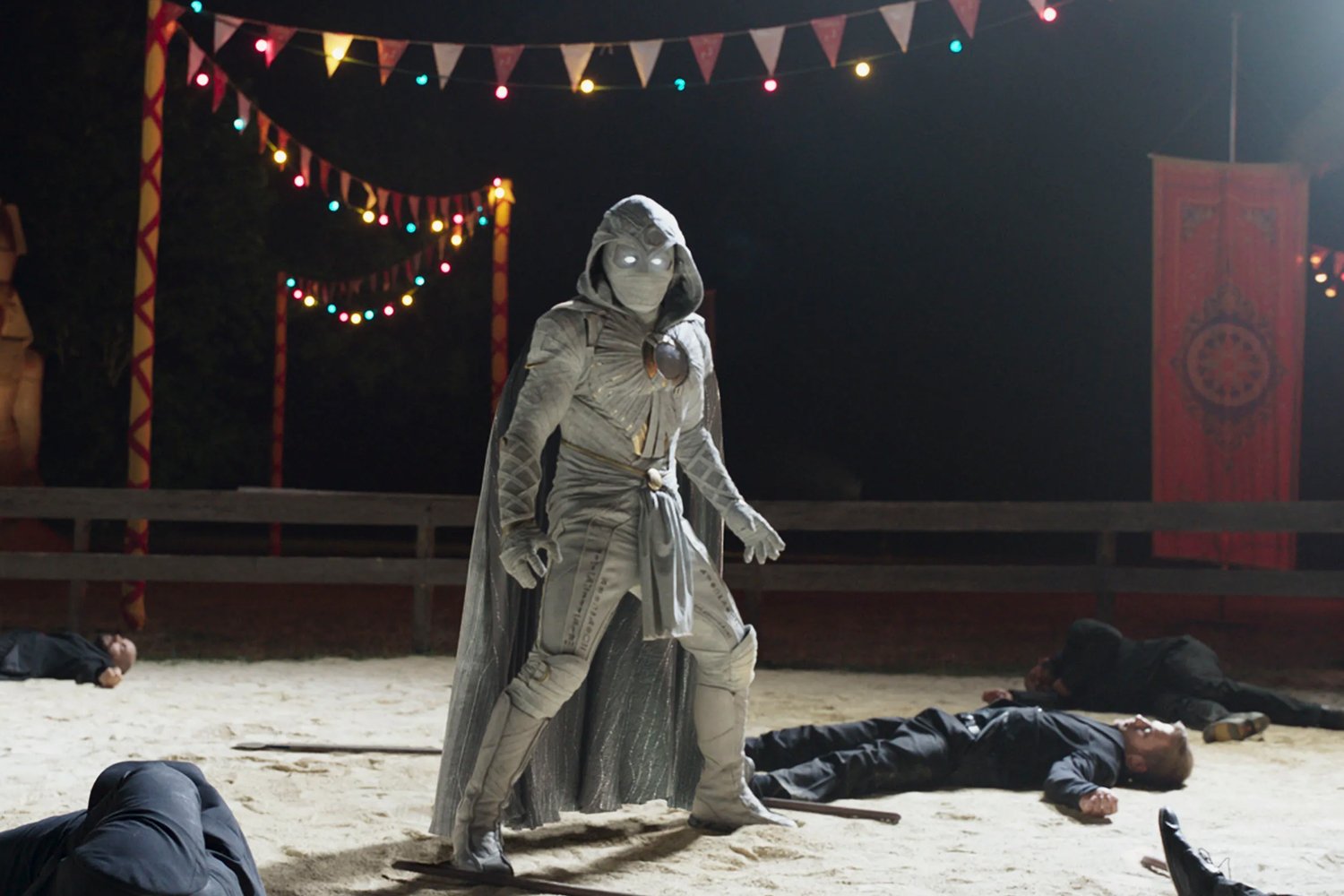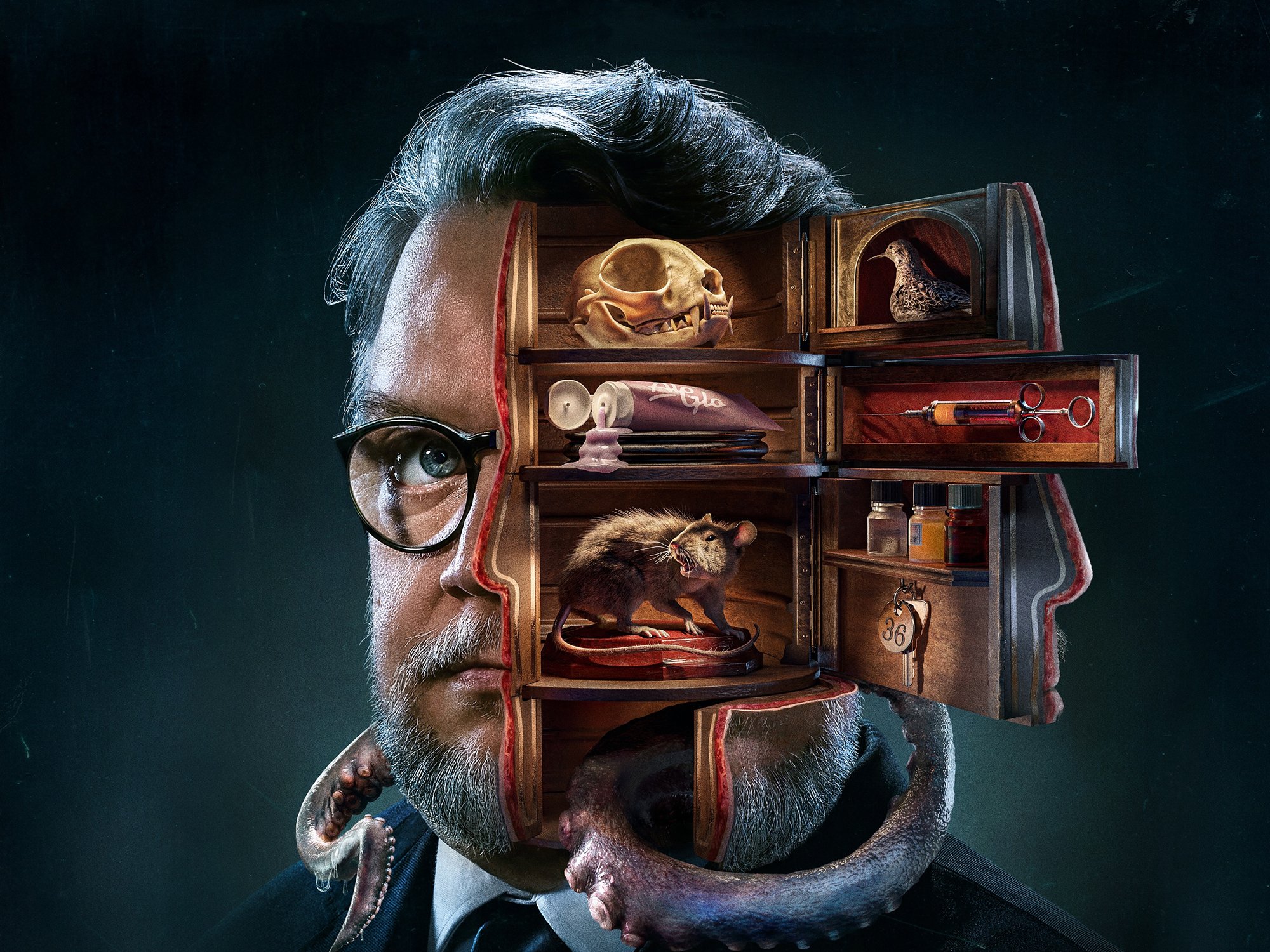TV Review: Moon Knight
Oscar isaac shines in the pulpy, murky Moon Knight
Moon Knight brings a pulpy, globe-trotting spirit to the Marvel Cinematic Universe. Breathing life into the little-known Marc Spector, the Fist of Khonshu, Oscar Isaac commits wholeheartedly to dual roles defined by instability, British cheek, and bloody fisticuffs. A standalone six-episode series, Moon Knight is stuffed to the brim with fascinating possibilities, but only time will tell if it can traverse its tricky tightrope stretched between superheroics and mental illness. Four episodes watched for review. Minor spoilers ahead…
Nestled snugly between the comfortable street-level pleasures of The Falcon and the Winter Soldier and the reality-shattering swings of Loki, Disney Plus’ latest entry into the MCU - Moon Knight - introduces its first stand-alone character outside the movies. As a superhero tale attempting to tackle its unstable protagonist within the battlegrounds of Egyptian mythology, the new series created by Jeremy Slater (The Umbrella Academy, The Exorcist) unfurls a pulp adventure pastiche with tinges of The Mummy, Indiana Jones, and Legion. Moon Knight’s journey across its tricky tightrope between superheroics and mental illness largely succeeds on account of a committed performance from Oscar Isaac, but the results of its caped crusader juggling act will largely depend upon its final two episodes and their ability to crystallize its murk.
Created in 1970 by Doug Moensch and artist Don Perlin, Moon Knight is the superhero alias of Marc Spector, the son of a rabbi and a former marine turned mercenary. Betrayed by his fellow soldier of fortune Raoul Bushman, Marc is left for dead at the site of an archaeological dig, but is miraculously revived by Khonshu, the Egyptian god of the moon. As the “Fist of Khonshu,” Marc’s costumed identity atones for his past sins by defending the innocent and dispatching criminals with his bloodied mitts. He also has multiple personalities in the form of dissociative identity disorder: In addition to Marc Spector, Moon Knight toggles between the identities of dapper billionaire playboy Steven Grant and the incognito cab driver Jake Lockley, mostly as aides in his fight against crime. It’s the character’s most fascinating wrinkle, but also one that’s been handled with both genuine pathos and theatrical clunk.
“Moon Knight’s traversal of its tricky tightrope between superheroics and mental illness largely succeeds on account of a committed performance from Oscar Isaac…”
Disney Plus’ Moon Knight makes a whole bevy of changes to its complicated source material, and most of them are for the better - at least for television. Instead of focusing on the Marc Spector persona, the series follows Steven Grant as our gateway into this world; wisely jettisoning the billionaire playboy for a demure, museum gift shop worker, this Moon Knight turns Steven into a suitable audience surrogate. Saddled with what he believes to be a severe sleepwalking disorder - he chains himself to his bed every night after padlocking the door to his flat - Steven’s entire world is upended when a particularly bad “episode” finds him being chased down by armed goons in the Swiss Alps. Plunged into a life he never even knew he had - as Marc Spector and as Moon Knight - Steven becomes embroiled in a conflict with Arthur Harrow (Ethan Hawke), a religious fanatic with his own brand of twisted justice and a hidden link to the Egyptian gods themselves.
Moon Knight’s biggest strength lies in its performances. Oscar Isaac’s put-upon British accent strikes some chords of dissonance at first, but after a slew of charming and purposefully overwrought “bruvs” and “innits,” you’ll wholeheartedly buy his commitment to the dual roles. The interplay between a gruff Marc, a frazzled and clumsy Steven, and an increasingly exasperated Khonshu (a very funny F. Murray Abraham) do plenty of heavy lifting, but May Calamawy’s Layla is Moon Knight’s other standout. As Marc’s beleaguered wife, Layla is a believable tether between Steven and Marc’s worlds, and proves to be much more than a Rachel Weisz transplant from The Mummy.
“…the performances are so good that they’re more than enough to distract from the series’ relatively thin and murky storytelling.”
In fact, the performances are so good that they’re more than enough to distract from the series’ relatively thin and murky storytelling. Reconfiguring 50 years of obscure, convoluted comic book history into six episodes of television is a tall order, and one that the show consistently struggles to meet. Loaded with artfully (and not-so-artfully) disguised exposition dumps - whether it’s Marc’s explanation of his superhero role, Khonshu’s words of warning, or Arthur Harrow’s biographical sermons - Moon Knight feels like a crash course in everything Marc Spector. So why does it still feel so murky? If you’re unfamiliar with the character’s rich comic book history, you’ll be hard-pressed to define Moon Knight’s actual powers, and you’ll most likely feel more than a little discombobulated when Steven’s own “Fist of Khonshu” persona - Mr. Knight - emerges without much fanfare. The disparate, tonal inconsistencies within the hero have always been tough for his scribes to parse cohesively, and it seems that it still remains the case when translated for television.
Directors Mohamed Diab and the duo of Justin Benson & Aaron Moorhead shine most brightly embracing Moon Knight’s inherent weirdness - a cupcake truck chase and a nerve-rattling, gross-out mummy sequence are some highlights - but their grasp of superheroics is tenuous at best: With its wonky CGI and strangely enervating choreography, the promise of a more R-rated, brutal brand of MCU action largely goes unfulfilled. Moon Knight’s fourth episode twist gives a much needed kick in the pants, but with only six episodes to its season, it feels like a dangerous gamble with its precarious juggling act. There are so many balls in the air that it feels inevitable that everything will come crashing down in a cataclysmic way, but for now, it’s undeniably refreshing to take a step back from the tangle of the MCU for Oscar Isaac in a standalone adventure.













